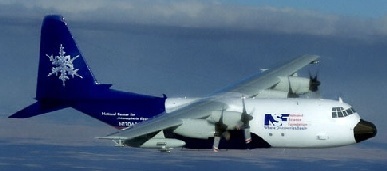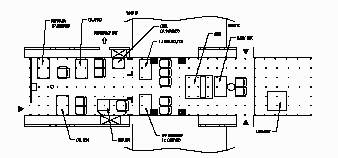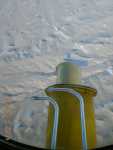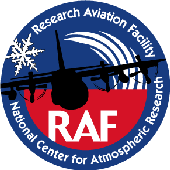 front view |
 |
 floor plan |
| (Click on an image above to see larger view) | ||
 front view |
 |
 floor plan |
| (Click on an image above to see larger view) | ||
|
The Research Aviation Facility (RAF), a Facility in the Atmospheric Technology Division of NCAR, announces IDEAS Phase 3, an instrumentation-development program on the C-130Q Hercules. The program's goal is to improve the capability of instrumentation for future NSF airborne deployments and to provide opportunities for students to learn about observational science. The Instrument Development and Education in Airborne Science (IDEAS) program has now completed its first year of implementation. The "idea" for the IDEAS program came from the annual UCAR Members' Meeting in the fall of 2000. A review of facility needs was conducted at this meeting, and one major discussion issue was that university faculty and students want more opportunities to participate in instrument development efforts. In particular, they wish to have the opportunity to access facilities that are not easily available to them, such as research aircraft, but are essential for testing new instruments they have or are developing. Previous UCAR Members' Meetings identified another need: to train students in observational science. There are few opportunities for students to fly on research aircraft and to actually participate in airborne measurements of clouds or other constituents of the atmosphere. |

Instrument pod on C-130Q |
|
Research flights, originating from the RAF facility at the Jefferson County airport in Broomfield, CO, will be conducted between 15 August and 19 September 2003 in both clear and cloudy conditions to test community, NCAR and RAF instruments for airborne measurements. A total of 25 flight hours is available for the program. Approximately one 3- to 6-hour flight is planned per week. (Data review, instrumentation modifications and flight planning will occur between flights.) A limited number of seats should be available for student participation, provided the student is able and willing to operate instrumentation and data systems after suitable instruction by NCAR scientists and technicians. The C-130Q will measure state parameters (temperature, pressure, humidity), winds, aircraft position and attitude, infrared/visible/ultra-violet radiation and other ancillary measurements in addition to the instruments undergoing test. These data will be displayed in real time in flight, and investigators will have access to variables via a serial feed for recording on their own systems. Data recorded on the RAF system will be processed and made available shortly after a flight. |

Nevzorov Probe and Oxygen Sensor inlets shown in flight over the Laramie Basin on 24 October 2002 |
|
The RAF is seeking participants for IDEAS. Several non-NCAR scientists and students can be accommodated on each flight, depending on the final payload configuration. The guidelines for IDEAS are:
Note: instruments that require substantial preparation to be ready for flight testing should be submitted as early as possible to allow additional time. |

Scientist J. Jensen collecting large-particle sample during IDEAS flight on 1 November 2002 |
|
Student Participants Student participation is targeted at higher education students, especially those who may have an interest in a career related to airborne science. Other student participation will be considered on a lower priority basis. Faculty members teaching related classes (e.g., instrumentation, air pollution, meteorology, etc.) are welcome to propose measurement needs for class projects using data collected by students during IDEAS. Note: No funds are available for student support. Participating students must arrange their own transportation, lodging, etc. To request student participation in IDEAS:
|

View of instrument racks in C-130Q cabin |
|
To propose an instrument for IDEAS:
|

View from C-130Q cockpit from IDEAS flight on 9 October 2002 |
|
Prospective participants are encouraged to discuss their ideas with Jeff Stith, RAF Manager, phone: (303)497-1032, email or |

|
Contacts:
Principal Investigator: Jeff Stith |

|